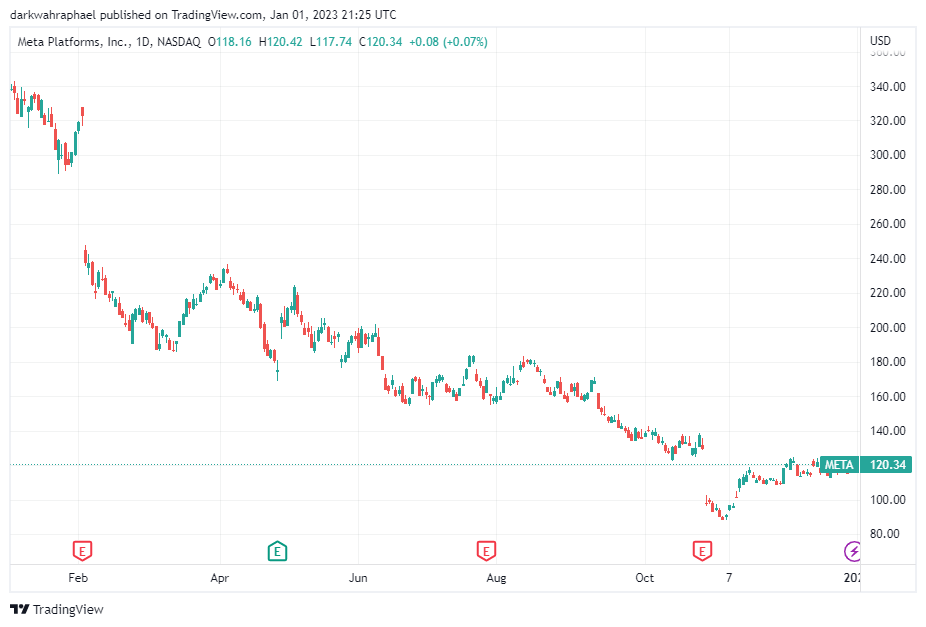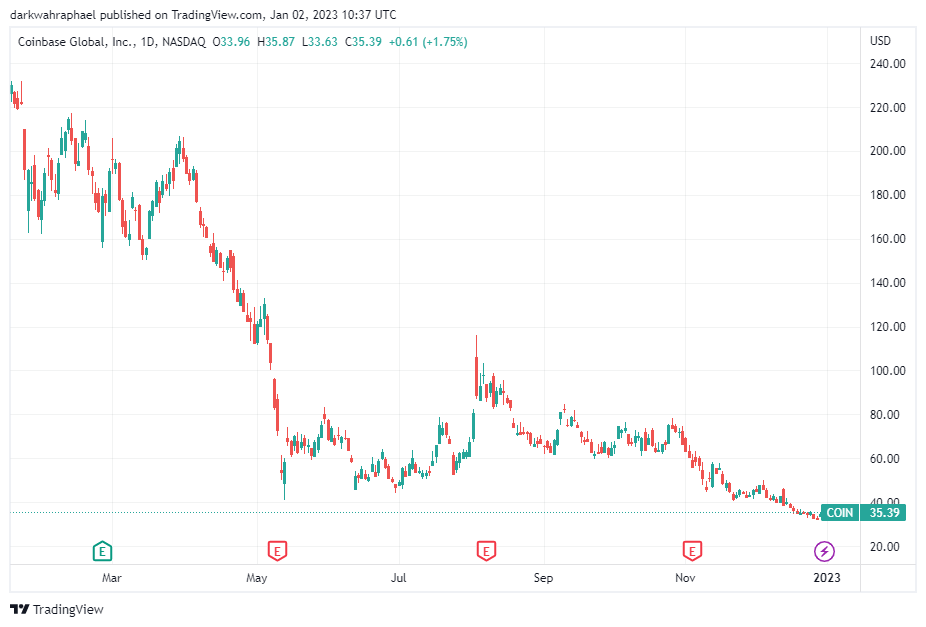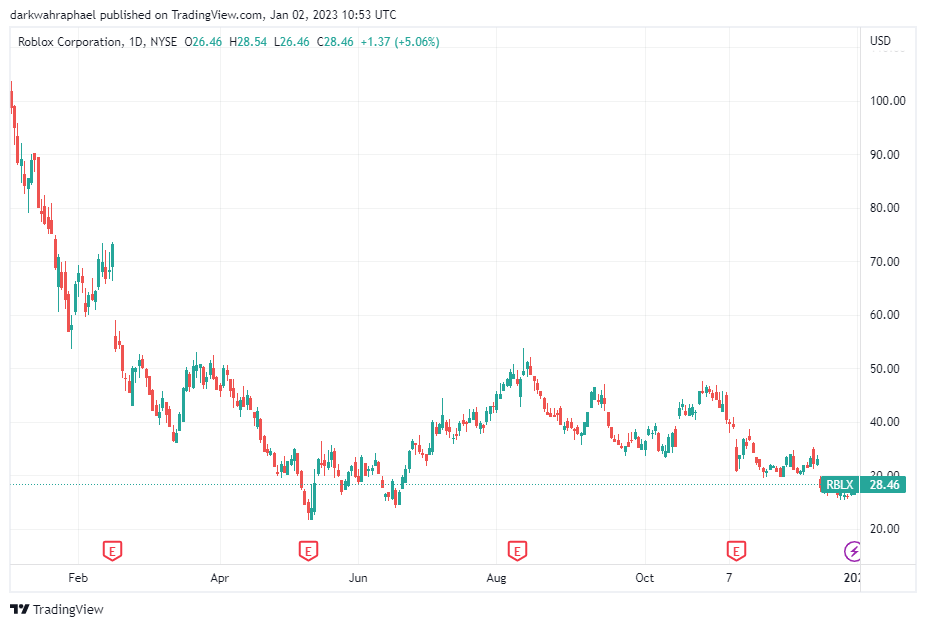Meta Platforms Inc., the parent company behind Facebook, Instagram, Messenger, WhatsApp, Meta Quest, Workplace, Mapillary, and Horizon Worlds lost more than 60% of its valuation in 2022, TradingView data showed.
The plunge in market valuation has reduced METAs capitalization by over $500 billion from approximately $936 billion on Jan. 1, 2022, to around $392 billion on Dec. 30, 2022. Much of the decline was attributed to the company’s metaverse project by Reality Labs which saw $9.4 billion in losses from January to September 2022.
Also read: EU Commission Warns Meta Over Facebook Marketplace Antitrust Breach
Meta Platforms was named along with Tencent, ZQGame, Nvidi, miHoYo, Lilith, NetEase, ByteDance, Epic Games, Unity, Microsoft, and Roblox as the key players that will contribute to the growth of the metaverse market to around $825 billion by 2030 at a compound annual growth rate of 39.1%.

Seeing a significant tumble in META stock is a cause for concern since the company’s applications play an essential role in the mobile and desktop metaverse (metaverse market by product type).
Aside from that, Meta Platform’s applications are integral in the gaming, social, conference, content creation, and online shopping (metaverse market by applications), and are used worldwide from the United States and Canada in North America to the Middle East, Africa, and Latin America.
Obsession has caused harm
Many stakeholders have credited the declining numbers of Meta to putting too much focus on emerging sectors. Among them is Art Shaikh, the founder and CEO of Circleit who told MetaNews that, “the obsession with the (metaverse) project has done tremendous harm to the brand.”
Despite the negatives, Meta has made some positive announcements in the last 18 months. In October 2021 when its market cap was above $1 trillion, Facebook announced that it will be hiring 10,000 workers in the European Union to work on its Metaverse.
In May 2022, Meta allowed a small number of collectors and creators to share their digital collectibles on Instagram.
This signalled the company’s embrace of non-fungible tokens (NFTs) – another sector made possible by blockchain technology which has generated more than $40 billion in all-time sales.
Three months after zooming into digital collectibles, the company announced in August that it supports wallet connections with Coinbase Wallet, Rainbow Wallet, MetaMask, and Trust Wallet.
With these wallets, Instagram users can post popular NFTs minted on the Flow blockchain by Dapper Labs, the development team behind NFT projects such as CryptoKitties, UFC Strike, NBA Top Shots, and NFL ALL DAY.
Towards the end of the month, Meta enabled owners of NFTs to share their digital art on Facebook in addition to Instagram.
NFTs on Instagram
In November, the company announced that creators of NFTs will soon be able to make their own digital art using upgraded features on Instagram where collectibles could be sold to fans on the platform.
Since NFTs cannot be created without blockchain technologies, Meta partnered with Polygon, Solana, and Phantom Wallet to facilitate this process.
META is not the only metaverse stock that was hit hard by the bearish market of 2022. Coinbase Global Inc. (COIN) also lost 86% of its market value throughout 2022. COIN opened on Jan. 3, 2022, at $256.27. Coinbase launched its NFT marketplace to the public in May.

Gaming is an essential part of the Metaverse and Roblox is a key player in the development of this growing sector.
Unfortunately, RBLX, the stock of Roblox, a game creation and online game platform shed 72% of its market value in 2022 from $101.91 on its opening day to $28.46 on the day of its close.

The Ethereum-based marketplace disappointed and could not see the same amount of revenue as other platforms such as OpenSea, Rarible, Magic Eden, and X2Y2 in the last seven months of the year. After reaching the year’s peak of $261.63 on its opening day in 2022, COIN closed the year on Dec. 30 with a price of $35.39.









 and then
and then